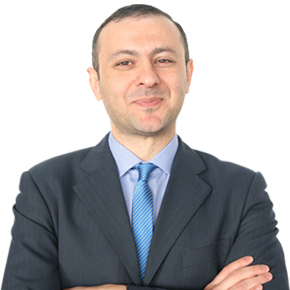Nowadays it is often stated that the world is becoming more and more homogenous and the majority of global phenomena is getting specific to most part of the world countries. Of course, this argument has its drawbacks but some observations show that the phenomena taking place in various countries are typical to the rest of the countries as well.
Since 2008, the financial and economic crisis has been challenging almost all the government systems in the world. Models of managing economies of democratic and authoritarian regimes have created a situation when the capital is accumulated by a very small number of societies. The society layer to have accumulated the capital has begun affecting the decision making process and supporting only the decisions meeting their interests. As a result of all this, the economic models don't represent the interests of wider society layers and besides, they caused the world to face an ecological disaster.
People – from China to the U.S, from the Great Britain to Egypt- have begun combating especially these models. People go out into the streets to demand change the current systems and in many cases these demands prove to be similar.
Since August 2011, ecologists in the U.S. have started large-scale protests against the construction of the oil pipeline stretching from Canada to Texas. It reached its climax on November 7 when about 12 000 people held a demonstration in front of the White House to demand banning the construction of the oil pipeline. The protest greatly affected the decision on the pipeline construction, and Obama's team has started discussing the possible danger of the project and options not to construct it. Almost at the same time, in September 2011, Armenian ecologists started raising an alarm over the hydro power plant due to be constructed on the Trchkan fall. The struggle for preservation of the Trchkan fall soon started. Already in November, it ended in victory and the Armenian government made a decision to give the Trchkan fall a status of specially preserved area.
In December 2011, inhabitants of the Chinese village of Vukan went out into the streets to complain at the government’s decision to alienate their lands. The complaint largely became public throughout China and Beijing started discussing why the land was handed over to the companies which presented development plans without the villagers’ consent. At the very same time in Armenia, people started combating the government’s N 627 decision which bore the threat of the obligatory displacement of Kajaran village. A large demonstration against the N 627 decision was held in front of the government building on December 29. Though there is no final decision yet the successes of the combating group let us hope the decision will be positive.
The processes mentioned above and a number of others show that the phenomena happening in the world are in many cases similar to each other. The reasons for similarity are different but one of the most important is that the current government systems of the world are undergoing a crisis and the problems caused by the latter and forms of combating them are almost the same.
The world has entered a phase of crises and the humanity is looking for new models of managing economic resources as the current models are not effective any longer. It might be tough to overcome the crises but the humanity can establish new government models in joint efforts and they will become pledges for creating and protecting justice in societies.
Armen Grigoryan is the Chairman of Democracy for Development NGO. These views are his own.

















